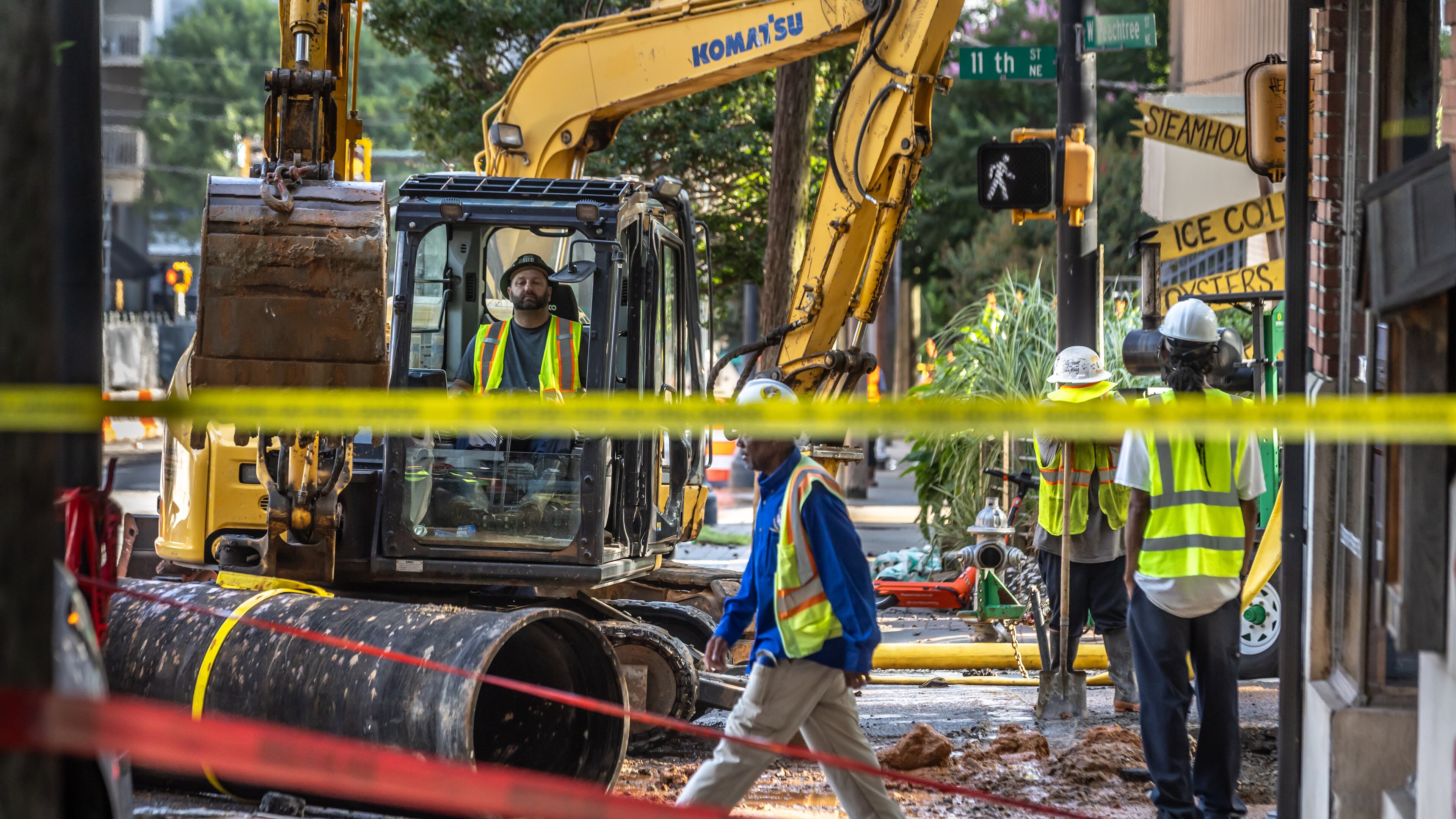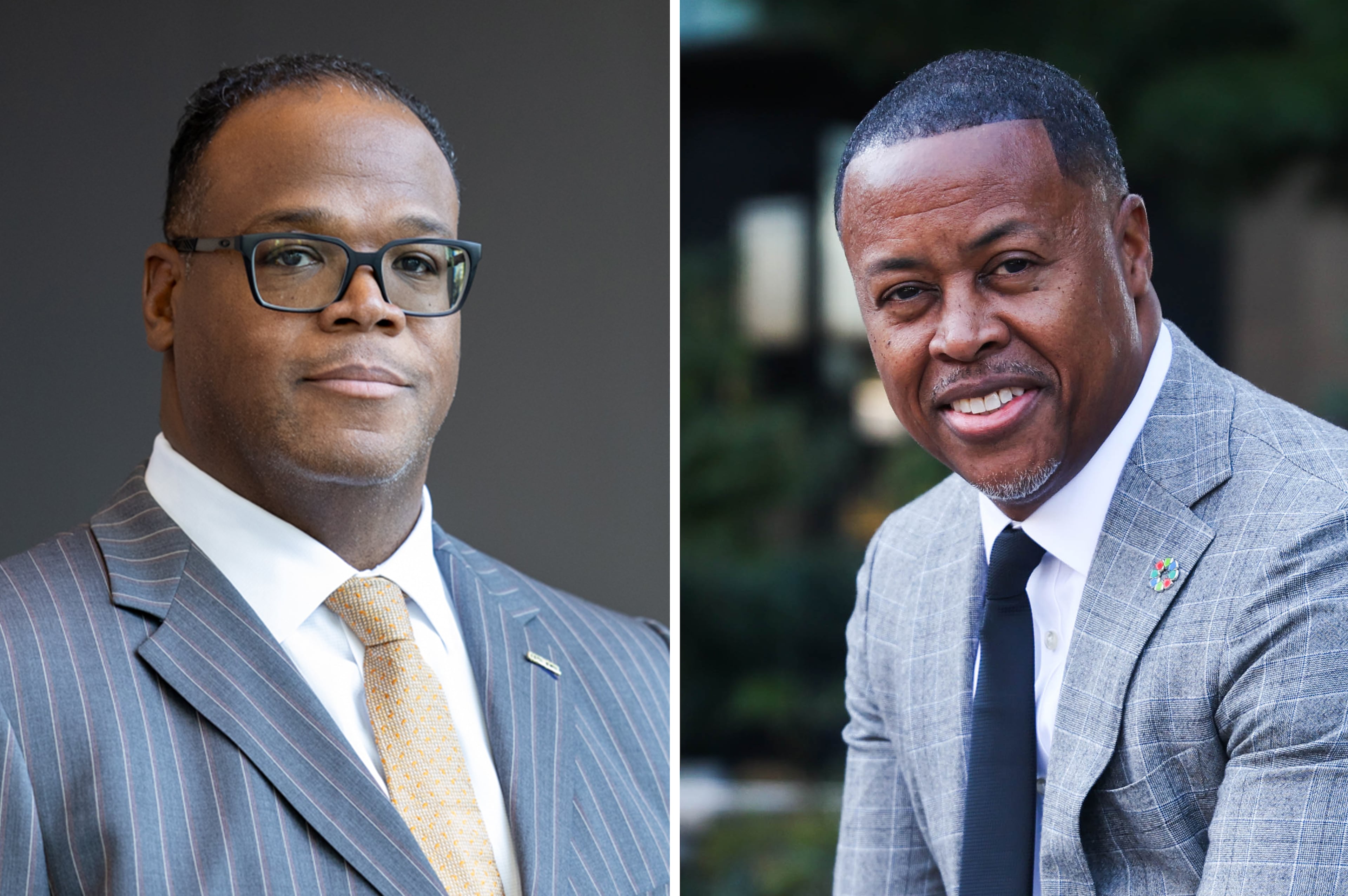Mayor Dickens: The water crisis is over, but the harder work is ahead

This wasn’t an easy time for the city of Atlanta.
Two major water main breaks interrupted water service and put parts of our city under a boil water advisory for days. I was out at the sites, and I saw the enormity of the repair work while listening and responding to the concerns and frustration in the impacted neighborhoods.
The situation tested the patience of residents, visitors and business owners. It tested the Department of Watershed, whose team members worked admirably and tirelessly around the clock to fix the issues and restore service. It tested me.

As mayor, my first priority was to ensure the city was focused and using all its resources across multiple departments to repair the breaks, make sure vulnerable citizens, especially senior citizens, had access to water for hydration and hygiene, and minimize further civic and business disruptions as much as possible.
The Mayor’s Office of Emergency Management marshaled and mobilized the city’s resources in a coordinated fashion to ensure the wellness of our citizens, including visits by Atlanta Police Department recruits and other staff to at least 45 senior facilities and the delivery of more than 11,400 cases of water. Our 311 operators and E911 operators worked around the clock.
To help small businesses who lost revenue due to water main breaks, Councilmember Matt Westmoreland and the Atlanta City Council partnered with me to create a recovery fund through Invest Atlanta with up to $5 million. Eloisa Klementich, who heads up Invest Atlanta, and Chief Policy Officer and Senior Adviser Courtney English will work on the details of that program and provide details soon.
I know many residents were very upset by the impact of water service to their homes and the length of the boil water advisory and the lack of communication at the beginning of this crisis.
We didn’t provide timely updates in the beginning and for that, I apologize.
We worked to improve our communications response after the first 24 hours of the situation and gave regular updates with the best information we had at the time. That’s not a perfect answer, and we are looking at ways to do better around emergency response protocols in the future.
We’ve learned our lesson, and we won’t learn it again.
The heart of the crisis is over, but the harder work is ahead.
Over the years, the city has made upgrades to its water and sewer infrastructure. Just a few weeks ago, Atlanta residents voted to continue the Municipal Option Sales Tax to pay for water and sewer improvements. That work will continue, but we must do more to ensure the viability and sustainability of our water system for decades to come.
Thanks to help from U.S. Sens. Jon Ossoff and Raphael Warnock and the Biden-Harris administration, the U.S. Army Corps of Engineers has been deployed and will conduct an assessment of our water infrastructure and give priority recommendations to move forward. Experts from the Federal Emergency Management Agency are also helping us assess our response systems, including crisis communications protocols.
My administration is also standing up a Blue Ribbon Taskforce to help enact the recommendations we hear from the Army Corps of Engineers and FEMA. Former Mayor Shirley Franklin and Metro Atlanta Chamber CEO Katie Kilpatrick — who is an engineer by training and deeply experienced on water issues — have already agreed to join.
Retired Maj. Gen. Ron Johnson, a professor and incoming chief of staff to President Angel Cabrera at Georgia Tech, also has agreed to serve. He was the deputy commanding general and deputy chief of engineers, the second-highest ranking senior engineer for the U.S. Army Corps of Engineers. Several other professors with specific engineering expertise will also support this work.
We have the brain trust and we have the will. Making Atlanta the best place to raise a child means that we focus on all aspects of the city, from public safety to community revitalization to affordable housing to infrastructure. My administration is committed to doing that work and communicating openly, honestly and transparently every step of the way.
Thank you for your patience and resilience during the course of these past few days.
Together, we will meet the moment and continue to move Atlanta forward.
Andre Dickens is the mayor of Atlanta.
Atlanta Water Crisis - Our Coverage
News
- Atlanta drinking water system suffered as city spent billions on sewers
- Six days of water woes in Atlanta - As it happened
- The impact: Atlanta water main breaks cost local restaurants big money. Now what?
Opinion and solutions
- Editorial Board: Days without water. This world-class city must do better.
- Mayor Dickens: The water is back on, but the harder work is ahead
- King Williams: Now is an opportunity to make a big ask to Biden
- More voices and perspectives
From the publisher


